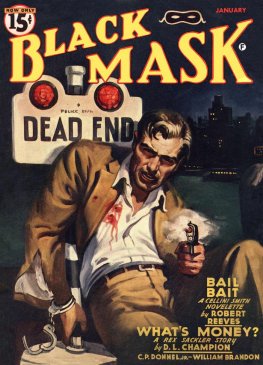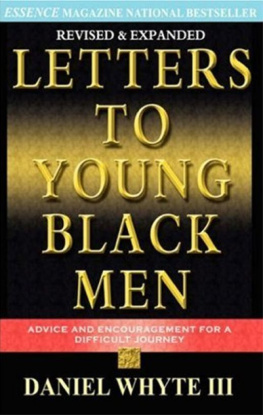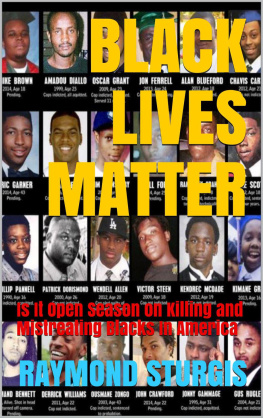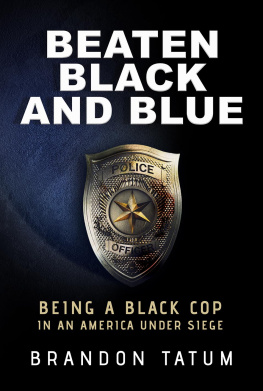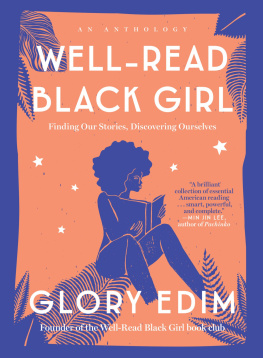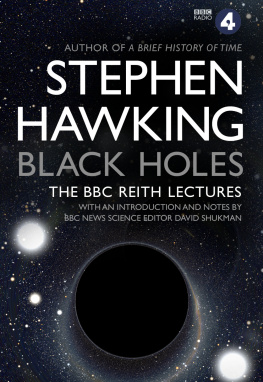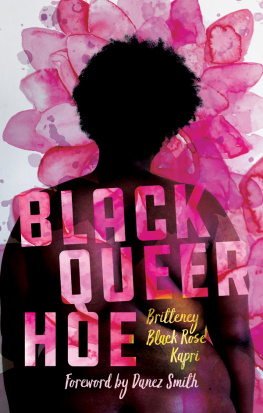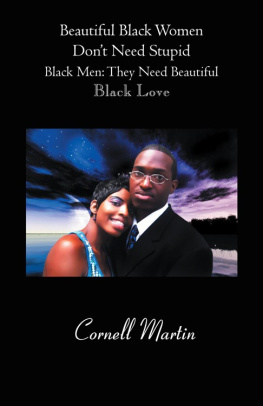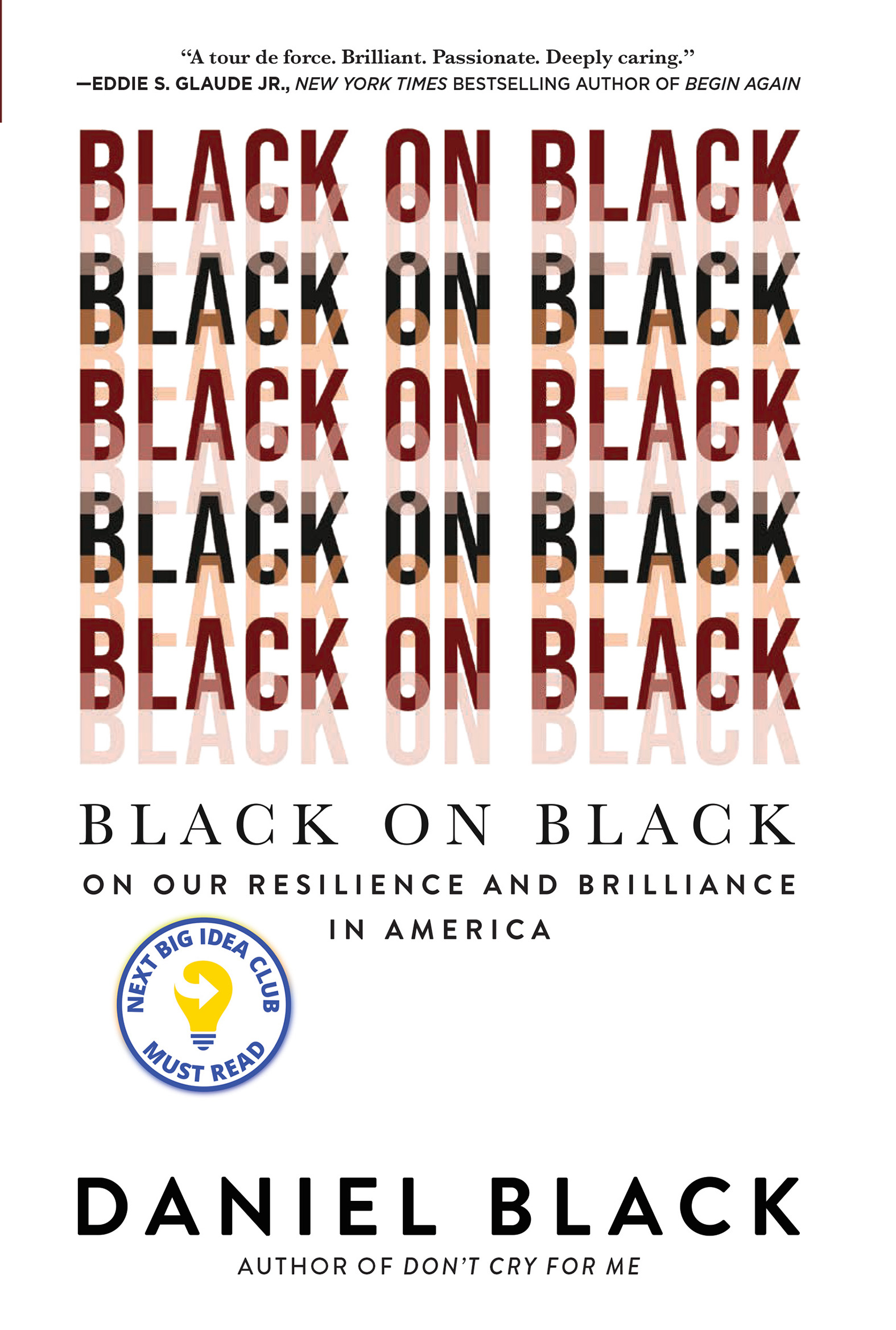
Praise for Black On Black
Blacks extraordinary insight and literary skills combine to create a work that promises both revelation and linguistic ingenuity. Every word in Black on Black is fashioned from joy, pain, and tears.
Greg E. Carr, PhD, JD, associate professor of Africana studies, Howard University
Black on Black is a tour de force. Brilliant. Passionate. Deeply caring. One reads these essays and feels immediately enveloped in Daniel Blacks loveeven when he challenges you or when you might disagree. I really needed to read this book in these trying times.
Eddie S. Glaude Jr., New York Times bestselling author of Begin Again: James Baldwins America and Its Urgent Lessons for Our Own
In a very real sense, the moral and ethical imperative of Black on Black is to speak a truth that renders Black lives sacred, valued, and luminous. In this sense, like many of my generation, Daniel Black announces a prophetic lineage that places him among Baldwins progeny, a fierce and passionate wish for the community, indeed the country, to heal and hold itself by standards that emerge from within rather than without, an unapologetic love that runs like fire beneath the history of skin. Black on Black is tender. Beautiful. Fierce beyond measure.
Major Jackson, poet and author of The Absurd Man
Daniel Black is one of our most treasured authors. Black on Black takes on a confessional mode, the stirring of a soul that shines a bright light on too many untold truths. Writers often write by hiding themselves between the pages of their books. There is no hiding in the shadows here, for we see the full evolution of Blacks brilliance, his queerness, his Blackness, his love of the written word. Engaging the familiar and unpacking the unfamiliar make Daniel Black both witness and much needed prophet for our times. A book you will not want to put down and will be excited to share.
Maryemma Graham, University of Kansas professor of English and founding director of Project on the History of Black Writing
DANIEL BLACK is an author and professor of African American studies at Clark Atlanta University. His novels include Dont Cry for Me, an Indie Next and Book of the Month Club pick, as well as The Coming, Perfect Peace , and They Tell Me of a Home. He is the winner of the Distinguished Writer Award from the Middle-Atlantic Writers Association and has been nominated for the Townsend Prize for Fiction, the Ernest J. Gaines Award, and the Georgia Author of the Year Award. He was raised in Blackwell, Arkansas, and lives in Atlanta, Georgia.
BLACK ON BLACK:
On Our Resilience and Brilliance in America
Daniel Black

To every black activist, marcher, and protester whose name didnt go down in history.
Contents
Introduction
What makes Daniel Black unique is his willingness to tell the difficult story. When, in 2010, he released his novel Perfect Peace , I knew we had an author whose literary skills matched the fierceness of his story. In this tale, Black introduces a child born male but raised as a girl. It was one of the first black trans novels in the country. Thats who Black isa disrupter of the status quo, a healer of the wounded, a mouthpiece of justice for the marginalized. In his work, readers get both the impact of first-rate literature and examples of humanity at its best and worst.
The essays in Black on Black are delicately and forcefully spun on the loom of Daniel Blacks lived experiences. We are often, to borrow from one of Blacks jegnas, Sister Sonia Sanchez, wounded in the houses of friends. Those wounds are in these pages, to be sure; but so, too, are the healing balms from the Gileads of black institutions, from the church to the school to the family and the countless other spaces beyond. Daniel Black is a readers writer, requiring us to identify the inner sister, brother, mother, father, son, or daughter we too often fight fiercely to protect from a hostile world. For black people, this fight of self-protection is waged in a system of exploitation, dependent from its inception on ensuring, in matters large and small, that black lives do not matter.
Every word in Black on Black is fashioned from joy, pain, and tears. In these essays, Black urges readers to step beyond antiquated notions of masculinity. In essence, he wants spirit beings on the earth, people who dont diminish others as they exalt themselves. He wants divine souls who arent afraid to disagree with power structures. He wants an America in which black people make the same assumptions about their citizenship as any other people. He wants the possibility that the American public school system and the American penal system believe that black life is worth living and saving. Put simply, he wants us free. And hes willing to pay for it.
Like August Wilson, Daniel Black takes his readers from country towns to ships bursting with enslaved and undefeated Africans, from the precarity of the materially unhoused and the biologically unsettled to terrors and triumphs found in forests bursting with lynching trees and hush harbors and concrete jungles leaving scars that obscure the bloody but unbowed presence of an unapologetically black humanity underneath. These essays trouble already troubled water. Black explains what happens to black institutions when they belie criticism. He also shows what happens when we dont have them. Most poignantly, he begs us to see people for who they arenot who we want or even need them to be.
At the same time, Blacks personal wounds bleed all over the page. He asks readers to trace their source, to discover our fundamental flaws, our repeated mistakes, our beliefs that have cost us our dignity. And he dares us to heal, to insist on healing, although America holds for us no such requirement. Perhaps reading Black on Black is the healing.
After years of exploring our experiences through fiction, Daniel Black has at last chosen to narrate the black subject without the oblique safety of the novel. In doing so, Black returns blackness to spaces of promise, albeit ones fraught with continuing challenges of self-hatred, external assault, and temporary failures of will and vision. Longtime readers of Daniel Black will find something new in these explosive pages, a prophet who strips himself and his people bare in order to establish them as unashamed keepers of their own destiny.
The critical rememories in Black on Black connect to the beating heart of the black community, namely remade African cultural practices that keep our communities alive. If Du Boiss two souls has been mined alongside the color line as a signature metaphor from his 1903 epistle The Souls of Black Folk , it is the Africans one dark body that is the signature metaphor of Blacks epistle. Daniel Black believes in the dogged strength of that corporate concept of blackness, one he has uncovered and discovered through an unyielding life of study and practice. Following his introductory manifesto, the beating African heart of the blackness that informs Black on Black might be imagined as circulating the blood of his essays through four thematic chambers: The Black Self, The Black Church, The Black School, and Black Survival. The essays pump this blood of critical black rememory through the extensive network of vessels and capillaries that keep the one dark black collective body alive, self-governing and able to fend off the disease of white supremacy by navigating parasitic and unfailingly hostile social structures.
Next page

